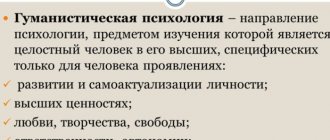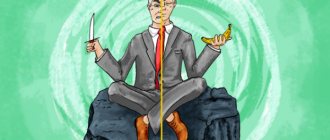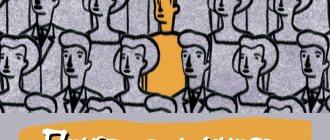Childhood and youth
The founder of logotherapy was born on March 26, 1905 in the capital of Austria-Hungary. Victor Emil was the second of three children in the family of Social Security Ministry official Gabriel Frankl and his wife Elsa. The parents of the psychologist, his older brother and younger sister were Jewish.
Victor’s mother felt the first contractions in the Siller cafe, and Frankl was born and spent his childhood in house 6 on Chernin Street. Across the road, at house 7 on the same street, lived the psychiatrist and philosopher, founder of the Second Viennese School, Alfred Adler.
Embed from Getty Images Viktor Frankl as a child with his brother and sister
Victor recalled his mother as an exceptionally kind-hearted woman, and his father’s main traits were decency and scrupulousness. Gabriel was quick-tempered and once, in a fit of anger, he broke an alpine cane on his youngest son’s back. However, thanks to the man’s justice and his self-confidence, all family members lived in a sense of security.
At the age of 3, Victor wanted to become a doctor. A year later, the boy told his parents that he had figured out how to create medicine. According to 4-year-old Frankl, it was necessary to find people who decided to give up their lives and therefore became ill. The child recommended dosing potential suicides with “drugs” like gasoline and shoe polish. That remedy, after taking which the patient will be cured, is the medicine.
In his adolescence, acting in amateur performances staged by his brother occupied a large place in Victor’s life. Even before graduating from high school, the young man wrote a treatise “The Psychology of Philosophical Thinking.” Frankl received his higher education at the Faculty of Medicine of the University of Vienna. The young doctor's specialization was neurology and psychiatry.
Relevance of humanistic theories
Speaking about Maslow's theory, we have already mentioned that his construction cannot be viewed linearly as the replacement of a satisfied need with the next one that has not yet been satisfied. Moreover, history knows a lot of facts when great scientists, artists and musicians vegetated in deep poverty and misery, which did not distract them from their pursuits of science and creativity. And the phrase “an artist must be hungry,” which has become commonplace, even implies that excessive concentration on solving everyday problems will interfere with thinking about the sublime.
A classic of the genre is the ancient Greek philosopher Diogenes, who lived in a barrel and abandoned the idea of starting a family, believing that this would limit his freedom. Refutations of the rigid hierarchy of values can be found even in the history of humanistic theories of personality themselves. Psychologist and neurologist Viktor Emil Frankl, who made a breakthrough in understanding man as a highly spiritual being, continued to write scientific works even in the conditions of a fascist concentration camp, when the needs for food and safety were not only not satisfied, but there was not even a chance to somehow escape from this everyday nightmare.
Life also presents strictly opposite examples, when senior officials who have provided for themselves for 10 thousand lives ahead continue to take bribes, and not at all with the goal of investing them in their spiritual development or giving the world a unique scientific experiment. Nevertheless, it is worth recognizing that, when applied to the average citizen, humanistic theories of personality often confirm their relevance.
Thus, deficit motivation actually forces many to work three jobs and forget about rest and books. However, as soon as a person ceases to be in need, he needs not just housing, but a house with a beautiful interior and exterior, not just a vacation, but a trip to an exotic country where you can see a lot of new things and get an unforgettable experience. New hobbies often appear, a desire to engage in charity work, to get a second higher education, despite the fact that this requires expenditure both time and money.
Carl Ransom Rogers's clinical direction also generally stands the test of reality. One way or another, most psychotherapeutic techniques boil down to the fact that a person can be helped only when he wants to help himself.
Thus, it is worth taking from history to the present the optimism of humanistic theories of personality, which by default believe that a person is social and always strives to become the best version of himself. Simply because there are enough such people to confirm the theory in practice.
We wish you to be surrounded by exclusively highly spiritual and successful people who will contribute to your diversified development!
We also recommend reading:
- Storytelling
- Cattell's personality model
- Socialization of personality: briefly about the main thing
- Mechanisms of escape from freedom: theses of Erich Fromm
- Compensatory mechanisms
- Using Maslow's pyramid for self-actualization
- Existential psychology: ideas, stages of development, representatives
- Self-actualization
- Self-transcendence
- Situationism in psychology and human behavior
- What is conformity and how to avoid it
Key words: 1LLL, 1Cognitive science
Personal life
The veil over the secret of gender relations was lifted for the Frankl brothers by the maid, who allowed the teenagers to undress her and touch her body. In high school, Victor thought that once he got married, he would stop sleeping in order to spend all the night hours on the joys of his personal life.
At the end of 1941, the doctor married nurse Tilly Grosser. The woman soon became pregnant, but in a situation of increasing repression against Jews, the couple chose to have an abortion. Tilly, like Victor's parents and brother, did not return from the Nazi concentration camps. Love for his wife and imaginary conversations with her supported Frankl in the most difficult moments of imprisonment. The psychologist's book "The Doctor and the Soul" is dedicated to "dead Tilly."
Embed from Getty Images Tilly Grosser and Viktor Frankl in their youth
In 1947, Victor married Catholic Eleanor Katharina Schwindt, with whom he lived until the end of his life. The couple respected each other's religions, attended church and synagogue together, and celebrated Christmas and Purim.
Victor and Eleanor named their daughter, who later became a child psychologist, Gabrielle in honor of the doctor’s father. Frankl managed to take part in raising his grandchildren Katharina and Alexander and see his great-granddaughter Anna Victoria.
The psychologist loved strong coffee and ties. On all trips I took caffeine tablets in case the cafe couldn’t brew a strong enough drink. Frankl admired ties in store windows, even when he had no intention of buying them.
Victor composed music (elegy and melodies in tango rhythm). The scientist had an excellent understanding of frames (in most photographs the philosopher is depicted wearing glasses), appreciated humor and wordplay, and decorated his lectures with tales and anecdotes.
Scientific activity
In the 20s of the 20th century, Frankl developed a program for psychological support for students. Since 1933, the young doctor headed the suicide prevention department in one of the clinics in Vienna. Thanks to Frankl's psychological help, about 30 thousand women got rid of thoughts of suicide.
After Hitler's Anschluss of Austria, Jewish doctors were prohibited from treating Aryan patients. In 1938–1939, Frankl was engaged in private practice, and in 1940 he headed the neurological department of the Rothschild Clinic, the only hospital where Jews were allowed to be treated. Victor had to work not only as a psychiatrist, but also as a neurosurgeon.
In 1941, the man was invited to the US consulate and offered an American visa. The doctor refused: he did not want to leave his elderly parents without help. Victor's first place of imprisonment was Theresienstadt in the Czech Republic, where he ended up in the fall of 1942 and where his mother and father were already located.
It was a model camp, which the Nazis called a boarding house for elderly Jews and demonstrated to the Red Cross commission. There was a synagogue in Theresienstadt, and performances and exhibitions were held.
The secret of the Nazis’ “humanism” was simple - prisoners of the “model boarding house” were eventually sent to death camps. This is what happened to Frankl’s mother, who died in Auschwitz. In October 1944, Victor was also sent to Auschwitz, but a week later he was transferred to Türheim, one of the camps in the Dachau system.
Embed from Getty Images Viktor Frankl and wife Eleanor
In all places of detention, the prisoner, along with other prisoners, performed hard physical work, in particular laying rails. But in the evenings the doctor healed the souls of his fellow sufferers, helped them find the answer to the question of what was the meaning of their lives now, and gave lectures on mountaineering and psychology.
The doctor taught the prisoners the method of auto-training - they imagined how they would pass all the tests and be reunited with their families. From his own experience and the experience of other prisoners, Frankl came to the conclusion that the “will to meaning” is the “subconscious god” of every person, helping him to live and maintain dignity. Victor outlined this theory in the book “Man’s Search for Meaning” and other works.
On April 27, 1945, Frankl and other surviving prisoners of Türheim were liberated by US troops. Already in 1946, the scientist expressed the idea of reconciliation. The psychologist rejected the theory of collective responsibility of the German people for Nazism. According to Frankl’s memoirs, among the camp guards, in addition to sadists and indifferent performers, there were saboteurs of criminal orders who tried to make life easier for the prisoners.
From 1946 to 1971, Victor headed the Vienna Psychotherapeutic Clinic. Among the methods of psychotherapy developed by Frankl are the reverse treatment (patients who quickly forget information were asked to become world champions in forgetting, and their memory improved) and logotherapy (patients were told that they were smarter, calmer, more efficient than they were). in fact, and gradually people became better).
Death
Frankl died on September 2, 1997. The cause of the scientist's death was heart failure. The grave of the founder of humanistic psychology is located in the Old Jewish section of the Central Cemetery in Vienna.
Embed from Getty Images Viktor Frankl in recent years
The Viktor Frankl Museum opened in the Austrian capital on the day of the scientist’s 110th birthday. In February 2022, the psychologist’s portrait was engraved on a €50 commemorative coin issued in the “Viennese Schools in Psychology” series.
In 2015, the film “Viktor Frankl. “Say “Yes” to life!” In August 2018, for the world congress on logotherapy, held in Moscow, a 3-minute cartoon was filmed about the biography and teachings of a former prisoner of Auschwitz. The creators of the film were inspired by Frankl’s book “Say Yes to Life!” Psychologist in a concentration camp."
Time in the concentration camp
In 1942, a wave of mass arrests of Jews swept across Austria. Frankl's family was deported to the Theresienstadt camp near Prague. They, along with other prisoners, were placed in a cramped barn and forced to sit on the cold ground. On the first day, Victor was separated from his family, and he never saw them again.
During the war years, Frankl changed four concentration camps. Despite the loss of his family, he was able to find a new meaning in life. In the concentration camp, Victor not only survived himself, but as a psychologist observed other prisoners and supported them morally. Then this became the only meaning of life for himself. He managed to prevent several dozen suicides of other prisoners.
Quotes
- “In the end, God, if he exists, cares more whether you are a good person than whether you believe in him or not.”
- “If you are asked about something, you should answer as truthfully as possible, but about what is not asked, it is better to remain silent.”
- “No one has the right to commit lawlessness, even those who suffered from lawlessness, and suffered very cruelly.”
- “Happiness is like a butterfly - the more you catch it, the more it slips away. But if you shift your attention to other things, it will come and sit quietly on your shoulder.”
- “The most difficult situation is precisely what gives a person the opportunity to internally rise above himself.”
Principles
The basics of logotherapy are intertwined with its principles. This makes it possible to look for the meaning of life in activity, creativity or creation. For example, a person wants to do charity work and leave a mark on history. He becomes motivated to help a lot of people.
Having achieved this goal, he looks for a new one for himself. New acquaintances and the search for impressions are no less exciting goals. This includes travel, family, various sports. Sometimes suffering acts as a path to rethinking life. When problems begin, the time comes for a logical analysis of your actions.











